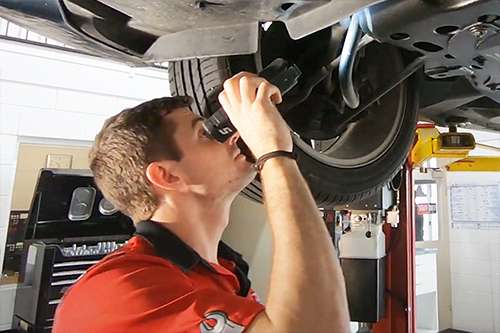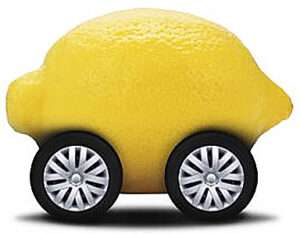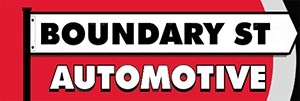Buying a used car in Townsville can be a smart and economical choice, but it should involve careful consideration and research before purchase. Our guide can assist you with what you need to know.
From vehicle checklists to comparing certified pre-owned (CPO) vehicles and how to avoid buying a lemon. Get peace of mind knowing you’re getting the best deal possible negotiating your next deal.

To avoid costly unseen vehicle repairs and safety issues, we highly recommend a thorough pre-purchase inspection from one of our qualified Townsville mechanics at Boundary St Automotive
Information Checks When Buying a Used Car
When you’re in the market for a used car, having a detailed checklist can make the process smoother and ensure you don’t miss any critical steps. With a detailed inspection report from your checklist, you have factual information to leverage during price negotiations. This empowers you to negotiate confidently based on the car’s actual condition, market value, and purchase history.
Vehicle History
- Information Check: Obtain a vehicle history report from a service like REVs Check and a vehicle registration check at QLD Government Registration Status.
- Title Status: Ensure the title is clear and not written-off or stolen. In Australia, you can check this with a PPSR (Personal Property Securities Register) search.
- Ownership History: Look for multiple previous owners, which could indicate potential issues.
Distance Travelled
- Reasonable Mileage: Generally, cars accumulate about 15,000 to 20,000 kilometres per year.
- Excessive mileage might indicate heavy use, an ex-service vehicle or fleet car vehicle.
- Odometer Consistency: Ensure the odometer reading matches the wear and tear on the car.
- Beware of odometer tampering (low Kms on an older car).
Logbook Service Records
- Maintenance History: Review service records to ensure the car has been regularly maintained. Look for a logbook with regular servicing stamps and talk to the servicing mechanic if possible.
- Recalls: Check if any recalls have been addressed by referring to the manufacturer’s website or the Australian Government’s Vehicle Recalls website.
Vehicle Test Drive Checklist - Spot the Warning Signs
Engine Performance: Check for smooth startup and listen for abnormal noises, ensure engine idles smoothly without fluctuations. Persistent knocking sounds or vibrations can indicate serious engine problems. Inspect for leaks (oil, coolant, or other fluids). Check the condition of belts and hoses for wear.
Exhaust Emissions: Monitor exhaust for excessive smoke or unusual odours during acceleration. Note the colour as it can indicate specific issues such as burning engine oil, coolant entering the combustion chamber, excessive fuel use, air-fuel mixture or engine tuning issues needing a vehicle service.
Handling and Suspension: Ensure the car handles well and feels stable on the road. Turn steering wheel fully left and right to check for smooth operation. Note any clunking or looseness in the suspension system. Drive over bumps or uneven surfaces to test the suspension feel.
Gearbox and Transmission: Ensure smooth gear changes (manual or automatic). Shift through gears (automatic transmission) or test gear changes (manual transmission). Note slipping, jerking, or unusual revving as it may indicate need for gearbox repair, transmission servicing, or total replacement.
Brakes and Wheels: Test in various conditions (reverse, etc.). Test parking brake. Test braking system performance at different speeds. Check for smooth braking without pulling to one side. Inspect tyre treads for even wear and check the production date.
Electronics Check: Test all electronic features, including lights, windows, and the infotainment system. Test functionality of safety features such as ABS, traction control (if equipped), and stability control. Test air conditioning and heating systems.
Visibility: Check visibility from all mirrors and make sure mirror control functions work. Test windshield wipers and washer fluid. Inspect all windows and window seals for cracks or damage.
Exterior and Interior Inspection: Look for dents, rust, and paint inconsistencies on all panels. Check for wear and tear on seats, dashboard, and upholstery.

DON'T TAKE HOME A LEMON WHEN BUYING A USED CAR
Questions to Ask When Purchasing a Second Hand Car
Why are you selling the car? Understanding the seller’s motivation can provide insight into the vehicle’s history and condition. It can help determine if a quick sale is needed or the vehicle is no longer required.
How many previous owners has the car had? A vehicle with fewer owners may have been better maintained. It can indicate the car is in poor condition or unreliable and is sold often.
Can I review the paperwork? This includes the service logbook to verify maintenance records, the registration certificate to confirm ownership and expiration dates, or a vehicle history report for incidents.
Are there any known issues with the car? While honesty may vary, asking this question may help uncover potential problems and give you an indication of the character of the person you are dealing with.
May I have the car inspected by a mechanic? This is a big red flag if the seller says no. It can indicate that there may be more problems that have been disclosed. It may be wise to consider other options.
Can I test drive the car? A test drive is essential to assess the engine’s performance and overall handling. Again, if the answer is no, then ask why or consider other options.
What was the primary use of the car? Previous use can reveal important details about vehicle wear and tear. Was it a service or fleet vehicle that while possibly well maintained still has a high milage usage? This is particular importance with 4wd vehicles as they may have been used in harsher road conditions, towed boats, trailers or caravans and other heavier loads.
Private Sales and Licenced Dealerships
When you’re in the market for a used car, whether from a dealership or a private seller, it’s essential to weigh the pros and cons of each option. Here’s a breakdown of what to expect:
Warranty and Legal Protections – Dealerships often offer a statutory warranty on used cars, providing protection against immediate issues post-purchase. Legal protections such as cooling-off periods (varies by state) give you time to reconsider your purchase if needed.
Financing Options – Dealerships typically offer financing options, making it easier to arrange a loan. Trade-in options are available, allowing you to offset the cost of your new purchase with your old vehicle.
Peace of Mind – Buying from a dealership generally comes with fewer risks of undisclosed issues or fraud. You’re more likely to avoid major surprises like engine failures shortly after purchase.
Higher Vehicle Sale Prices –Convenience and safety come at a cost; prices at dealerships are often higher compared to private sales. However, the added security and warranty may justify the price to some buyers.
Lower Vehicle Sale Prices – Prices tend to be lower when buying from a private seller, as they don’t have overhead costs. Negotiating directly with the seller may lead to better deals if you’re skilled at bargaining.
Flexibility and Negotiation – More flexibility in negotiating the price and terms of sale directly with the seller. No pressure to accept financing or trade-in offers if you prefer to arrange your own financing or keep your old car.
No Statutory Warranty – Generally, private sales do not come with statutory warranties or cooling-off periods. Buyers rely more on their own inspection and due diligence to assess the vehicle’s condition.
Potential Risks – Higher risk of purchasing a lemon or a vehicle with undisclosed issues.
Limited legal recourse compared to buying from a dealership if problems arise after the sale.
Townsville Pre-Purchase and Used Car Inspection Experts
When buying a used car, especially in a competitive market like Townsville, a thorough pre-purchase inspection is essential to ensure you’re making a wise investment. We offer experienced mechanics, comprehensive reports, and exceptional customer service to give you peace of mind and confidence in your purchase.
Boundary St Automotive offers Queensland Safety Certificate inspections and pre-sale evaluations. Our accredited mechanics ensure vehicles meet stringent safety standards, making them compliant for sale or re-registration. We can inspect the vehicle to uncover hidden issues, giving you peace of mind before buying a used car.
Trust the Townsville workshop with the knowledge and skill to provide the quality inspections and honesty you need to make an informed decision. Boundary St Automotive are an Authorised Repco Service Centre with a Nationwide Warranty covered in over 500 locations across Australia, so you know you’re in good hands.

